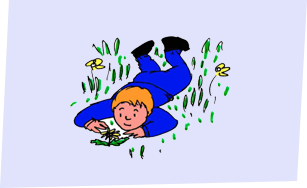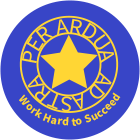Mathematics
Our children develop their knowledge and skills through curriculum planning based on the requirements of the National Curriculum, the White Rose Scheme (this has been temporarily re-organised in Year 2 in order for the full curriculum to be taught before the SAT`s tests) as well as Mastering Number programme. Planning is carefully designed in small steps and through a PVA approach – Practical, Visual then Abstract, with numerous opportunities for children to apply their knowledge to real life situations.
In addition to the main maths lesson, all classes in Key Stage 1 have a Mastering Number session following the scheme and using Rekenreks. Mastering Number aims to develop the children’s number sense and ability to subitize.
The school aims for all children to have a high level of fluency as well as a deep foundation of number and make connections between maths in the classroom and maths in the real world.
language development
We aim for the children to talk like mathematicians, and therefore we have a ‘no hands up’ policy during maths carpet sessions which, applied alongside ‘think, pair, share’, ensures that all children have a chance to use relevant vocabulary. We also insist that children answer in full sentences and stem sentences are given to support this.
Key vocabulary is carefully planned, specifically taught and then displayed in the classroom. All classes have up-to-date maths working walls which include pupil voice.
Planning and training aims to ensure there is consistency in the use of maths language across the school.learning behaviours
physical activity
We aim for every topic to be taught through the PVA approach to maths in all year groups. This means that all the children have to be able to ‘make’ the number, the calculation or shape before moving on to the next stage. We use a range of equipment including real life objects (e.g. straws, buttons, pasta) and then recognise mathematical equipment such as cubes, Numicon, Dienes and number lines. After making, the children will then need to draw a visual representation which could just be their own representation or a drawing of the mathematical equipment such as cubes, Numicon, a part-whole model, a bar model or a number line.
Children also have regular practise at writing numbers. They may draw them in a variety of ways – big and small, using a variety of mark making tools.cultural capital
creative curriculum design and progression
If you were to walk into a maths lesson at garden Suburb Infant School, you would see:
- Teachers demonstrating secure subject knowledge, teaching lessons which are explicitly adapted to be both ambitious and to meet the needs of pupils with Special Educational Needs.
- Teachers asking open questions giving children time to ‘Think, Pair, Share’ and then asking lots of children to answer without putting their hands up
- Children answering in full sentences, confidently explaining their thinking or strategy, using given sentence stems where necessary
- Vocabulary for a lesson on display and teachers referring children back to it frequently throughout the lesson
- Children using hands on resources and then drawing their own visual representations in order to solve calculations and problems
- Children working in mixed ability groups, working independently but also co-operatively as required
- Teachers ensuring that pupils apply mathematical concepts and challenge themselves through the use of problems and ‘real world’ tasks
- A supportive classroom environment where mistakes are shared and seen as only a step to the correct answer, therefore all pupils feel able to ‘have a go’
- A relevant working wall which supports children with their learning and understanding
Click on the documents at the bottom of the page, to see how our Curriculum Intent in Mathematics relates to our whole school Curriculum Intent, as well as our Mathematics Policy.

